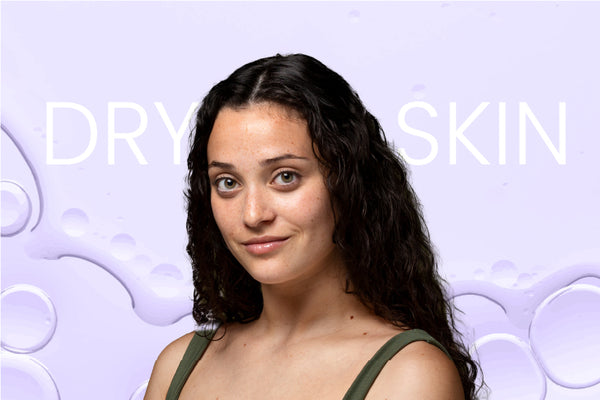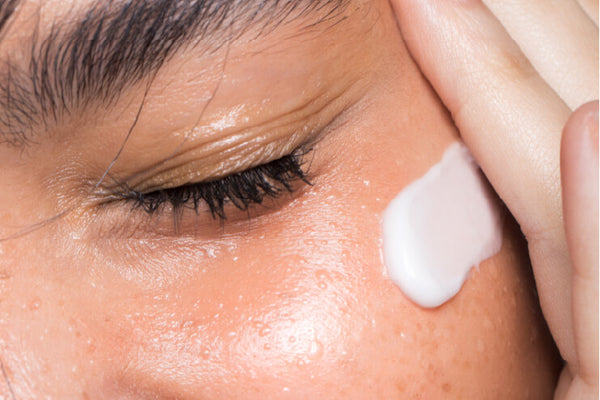Note: "Add 2 products to avail Buy 1 Get 1.
Not Applicable on Combo products."
Thin and Brittle Skin? Here is How To Take Care Of It

Thin skin is a common condition in older adults. Thin skin is skin that can easily tear, bruise, or break. It is not an indication of a serious underlying condition, but it sure can bring discomfort to your life. Thin skin is most noticeable on the face, arms, and hands. A person with thin skin can see the veins, tendons, bones, and capillaries under the skin of their hands and arms.
Our skin is made up of many layers. The middle layer, the dermis, contributes to 90 percent of your skin’s thickness. This thick fibrous tissue of the dermis provides strength, flexibility, and elasticity to the skin, as it is made of collagen and elastin.
When our skin doesn't produce enough collagen or elastin, the dermis starts thinning, which results in thin skin.
What are the causes of thin skin:
Thin skin is most often associated with aging. But it can also be caused by prolonged exposure to sun, genetics, lifestyle, and sometimes the use of certain medications.
Aging: As we age, our body produces less collagen. Since collagen is responsible for preventing wrinkles, sagging skin, and moisture loss. As the production of collagen is less, your skin is less able to repair itself thus resulting in thin skin.
Sun exposure: Too much exposure to the sun can contribute to a majority of noticeable damage like wrinkles, sagging skin, age spots, and thin skin. The body parts like hands, arms, and face, which are not covered, are most likely to have thin skin.
Certain medication: You may experience thin skin with long-term use of certain medications like:
- OTC- aspirin
- Blood thinners (prescription)
- Ibuprofen, Advil, and Naproxen
- Topical and oral corticosteroids
Lifestyle: Certain lifestyle practices can contribute to thin skin related to premature aging:
- Smoking
- Drinking alcohol
- Lack of physical fitness
- Poor diet
- Consuming sugary and refined products
How to prevent thin skin:
- Apply sunscreen before stepping out in the sun. SPF 30 or higher is recommended.
- Avoid tanning or tanning beds
- Quit smoking
- Limit alcohol consumption
- Do exercise or yoga
- Wash your skin regularly and gently
- Don't forget to moisturize your skin daily
How to treat thin skin
Topical retinoids: Topical retinoids, (derivatives of Vitamin A) are very effective at reducing and preventing visible signs of skin damage due to sun exposure. However, remember a person who uses retinoids for a prolonged time, can experience some skin issues like:
Skin dryness
Redness of the skin
Skin scaling
Itching
Balanced diet: Eating a well-balanced diet is important for the health of your overall body including your skin. You must include fruits, green vegetables, fish, healthy oils, and meats in your diet. Steer clear of oily foods, junk foods, alcohol, highly processed foods, and foods with high sugar content in them.
Nutritional supplements: If you are not able to maintain a balanced diet, then nutritional supplements can help your skin too.
Nutritional supplements that add anti-aging benefits are:
- Vitamin C, both oral and topical
- Gamma-linolenic acid (GLA), (Ex: evening primrose oil)
- Omega-3 fatty acids
- Collagen peptides
However, before stocking up on these supplements always check with your healthcare provider. Some supplements might not blend well with the medications that you are already taking.
If you have a severe case of thin and brittle skin, then you can consider getting in-office treatments like micro-needling, derma rolling, dermal fillers, laser resurfacing, photo facial, etc.
How to prevent further damage:
If you have thin skin, your skin may easily bruise, cut or scrape. There are certain precautions that you can take to lessen the risk of these injuries.
- Wear comfortable clothing to protect vulnerable body parts like arms and legs, which you can easily bump things with.
- You may consider wearing gloves to protect the fragile skin on the hands
- Move carefully and slowly to avoid accidental bruises
- Keep your skin well-moisturized
- If you have pets, keep their nails well-trimmed
- You should cover the sharp edges of the furniture or doorways with soft padding in your house


